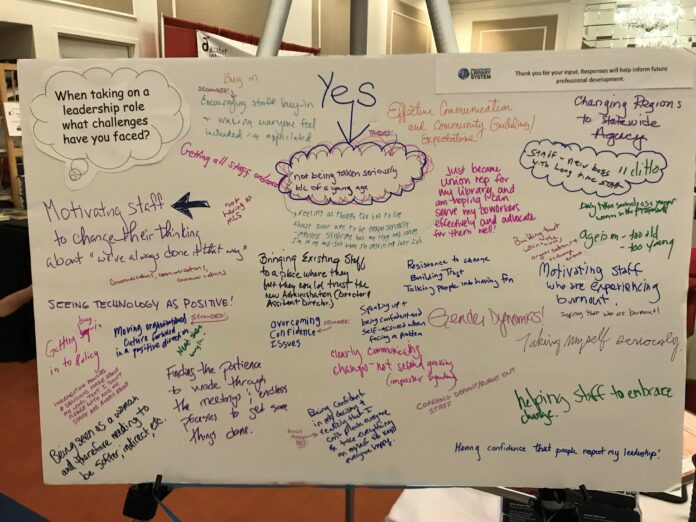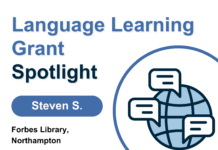Executive Summary
In the spring of 2019 MLS Consulting and Training Team members Amanda Fauver (Membership Manager) and Christi Showman Farrar (Consultant) were assigned the task of researching and evaluating the need for management and leadership training within our library community. This project was sparked by the “Call for Topics” survey performed by the Consulting Team in the Fall of 2018. After a year of gathering data, researching, and talking to our membership Amanda and Christi have prepared a final report.
Methodology & Conclusions
The methodology for this report focused almost entirely on qualitative research methods, with some quantitative data informing our findings. The main methods used were:
- Open-ended survey
- Focus group
- Crowd-sourced open response
- Interviews
- Landscape review – of free, paid, and degree-program offerings in the topic areas
Once data-gathering was completed for each method, our team employed analysis strategies such as affinity-mapping and card-sorting to identify trends and themes among the data. We utilized approaches taught by user experience experts such as Courtney Greene McDonald, Andy Priestner, Amanda Etches, and Aaron Schmidt, as well as techniques that Christi Farrar brought to MLS from previous experience in the field. Our analysis directly resulted in the “Essential Competencies for Library Management” seen below.
We have determined that this is a core group of competencies that library staff need in order to be successful and confident managers. Most of the skills can be loosely grouped into successful organization and management of “people” and “things”, with a broader classification that can be seen below in the competency chart. Massachusetts Library System (MLS) is an ideal source of training for some of these skills, whereas there are other resources available that are better suited to meeting the needs of library staff (e.g. MA Municipal Association is a stronger resource for governmental and municipal topics.)
To this end, we feel that MLS is in the position to create a core set of learning opportunities – in-person and virtual training, plus resources – that library managers can take/utilize to ensure that they meet these management competencies. This core learning should focus on areas that cannot be easily learned elsewhere via organizations and programs already in existence. However, this is not to say that some overlap cannot occur. The development of MLS training in leadership/management competencies should draw from the needs of our members, while maintaining consideration for resources, capacity, and ease of use. The work on this report was also used in the construction of our current strategic plan and is represented in Strategic Initiative 2.
Read our full report which is available here –
Management and Leadership Training in MA Libraries Report
A separate copy of our competencies are available here –
Essential Competencies for Library Leadership
Finally we would like to extend a special thank you to all who took the time out of their busy schedules to discuss this topic with us and contribute their thoughts and resources to this report.


